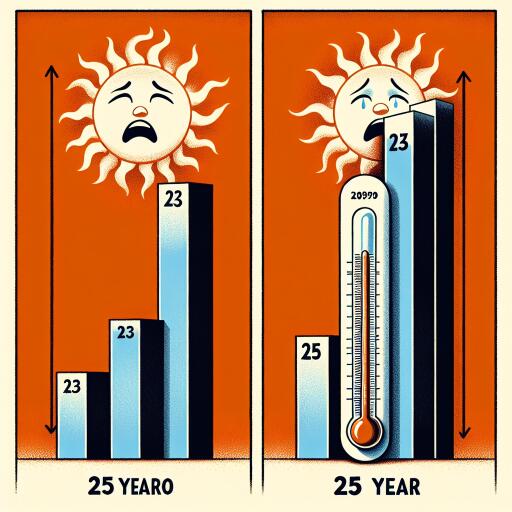
U.S. Heat-Related Deaths More than Double in Recent Decades
In a striking testament to the escalating impacts of climate change, a recent study highlights a dramatic rise in heat-related fatalities across the United States over the past quarter-century. This comprehensive exploration into the deadly consequences of extreme temperatures revealed that the instances of such fatalities have surged by an astounding 117% from 1999 to 2023.
The research scrutinized death records, pinpointing instances where extreme heat played a primary or contributing role in the fatalities. Utilizing data from the Centers for Disease Control and Prevention (CDC), it was discovered that the number of heat-related deaths escalated from 1,069 in 1999 to an alarmingly high 2,325 in 2023.
Interestingly, 2004 saw the lowest number of heat-related deaths within the study’s timeframe, with 311 cases, contrasting sharply with the peak of 2,325 cases in 2023. This dramatic rise corresponds with a period marked by repeatedly shattered global heat records, illustrating the intensifying grip of climate change.
The recent years, specifically from 2016 to 2023, have witnessed a particular spike in heat-related mortality, averaging an annual increase of 16.8%. This surge starkly reverses the prior downward trend and underscores the escalating hazard posed by rising global temperatures. The phenomenon isn’t isolated, with other global studies concurrently reporting heightened mortality risks due to increasing temperatures.
In line with these unsettling findings, the year 2023 stood out as the bearer of the highest average global temperature since records commenced in 1850, as reported by the U.S. National Oceanic and Atmospheric Administration. Health complications such as heat exhaustion and heat stroke result from the body’s inability to cool down, leading to potential damage to critical organs, including the brain.
The researchers behind this study have sounded a warning bell, predicting a continuation, if not an exacerbation, of this upwards trend in heat-related mortalities if significant countermeasures aren’t adopted. They suggest that regions particularly vulnerable to extreme heat should invest in expanding the availability of hydration centers and public cooling facilities as a way to buffer their populations against the lethal effects of soaring temperatures.
Despite the compelling evidence presented, the researchers admitted to certain limitations within their investigation. These include a possible underreporting of heat-related deaths due to misclassification and a potential bias stemming from the growing public and medical acknowledgment of heat-related health risks over the analyzed period.
In essence, this study casts a stark light on the deadly toll exacted by extreme heat, intensified by the ongoing march of climate change. It lays bare the urgent need for adaptive strategies and robust intervention efforts to combat the rising tide of heat-related fatalities, signaling a call to action for communities and authorities alike.





Leave a Reply